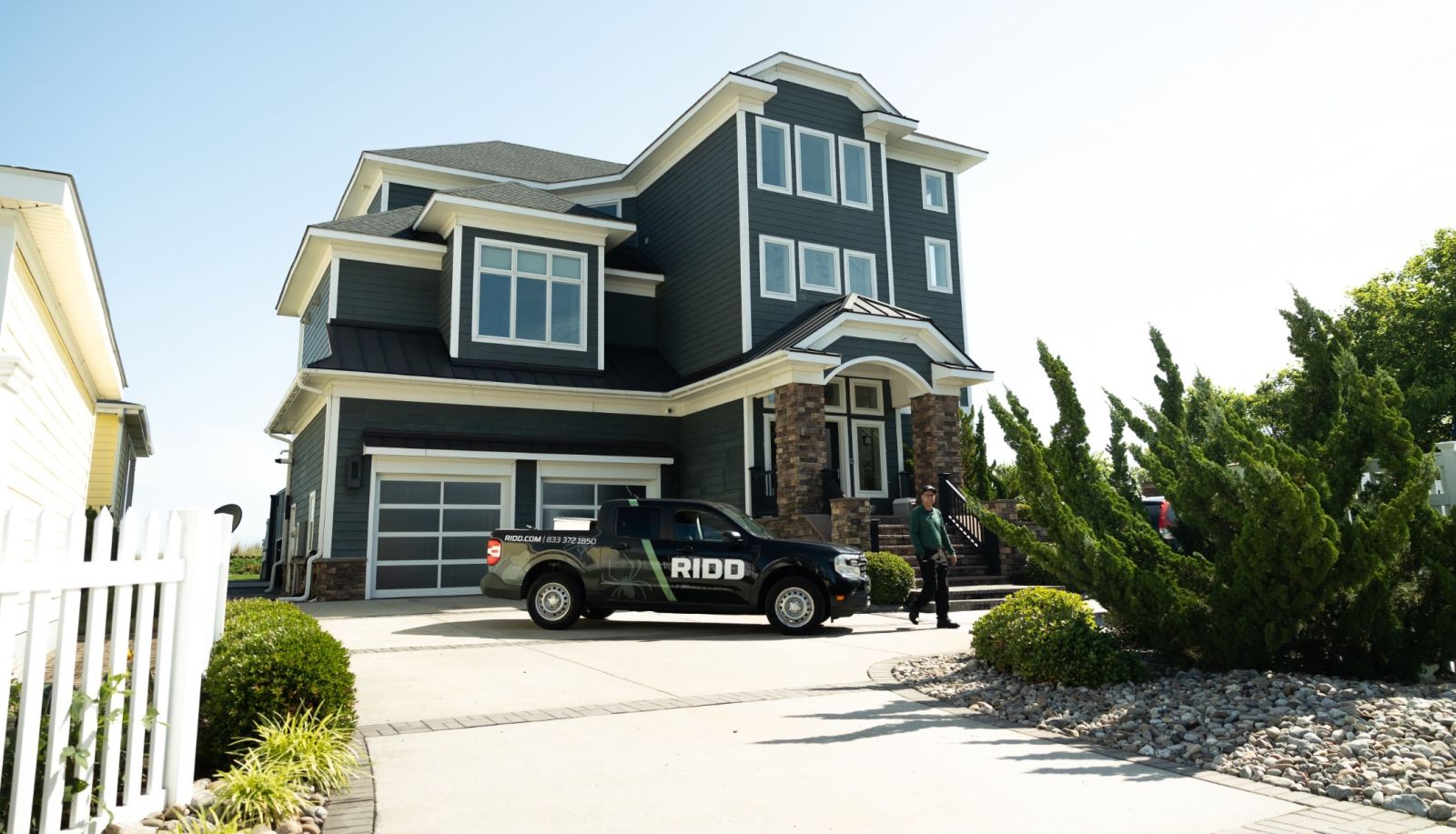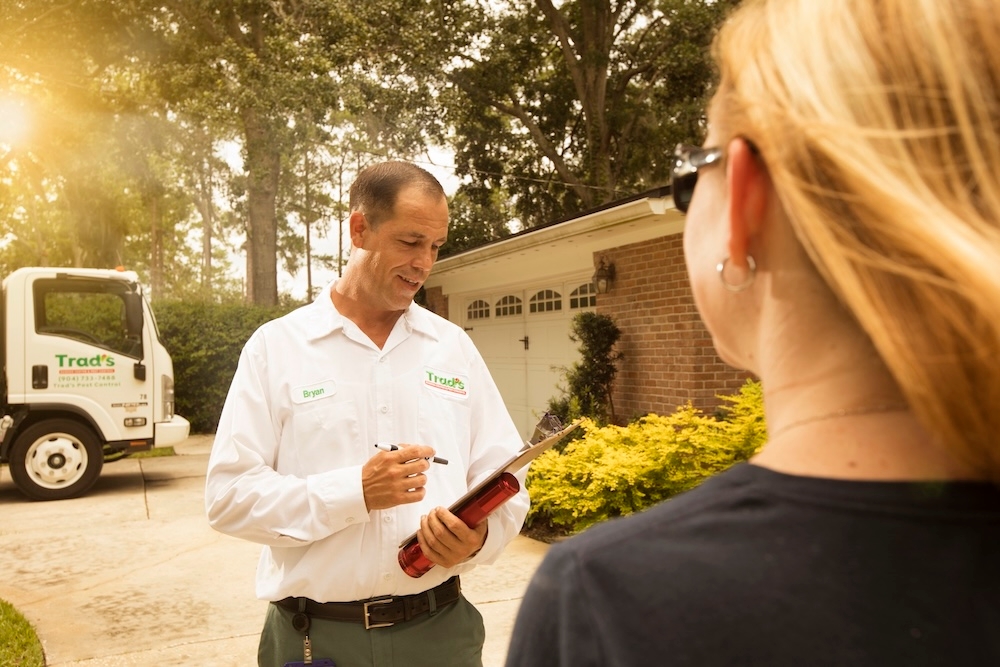Trigger Rules Save RIDD Pest Control $100,000 a Year; Here’s How to Make Them Work for You, Too

RIDD Pest Control gave Dan Farah permission to pull the trigger.
The chief administrative officer for the Utah-based company, possessing an operations and tech background, began work in 2022, and his early duties included evaluating whether RIDD's software partner, FieldRoutes, offered the superior solution to deliver operational efficiency, elevate the customer experience, and drive revenue growth.
If a change would be needed, Farah would recommend it.
"I was tasked with re-evaluating literally everything possible," Farah says. "And FieldRoutes was one of them."
After shopping around, turns out the only triggers Farah needed to pull are found inside FieldRoutes software. RIDD Pest Control just wasn't squeezing them.
"I was very surprised no one was using Trigger Rules before," he says of the powerful FieldRoutes automation tool. "Everyone thought I was super-smart when I figured it out, even though it was a really simple thing to do. They thought I was a genius, which I'm not. But it was cool for everyone to think that."
In FieldRoutes software, Trigger Rules are automated actions on customer accounts that occur under certain conditions, such as sending custom messages to each customer whose subscription is expiring with an invitation to renew, applying late fees when an unpaid invoice reaches a certain age, messaging customers about past-due balances, or communicating appointment reminders.
Numerous factors are part of the success equation, of course, including RIDD Pest Control owners' acumen from former sales manager roles and the company’s dynamic door-to-door sales results.
But this company established five years ago, doing business in and around Salt Lake City and in five southeastern states, is experiencing extraordinary growth in revenue—$25 million in 2024, Farah reported, or 178% more than two years earlier.
"I don't see a reason why we need to switch,” Farah told RIDD leaders. “They're doing better than everyone else."
RIDD Pest Control might be, too.
How RIDD uses Trigger Rules to save time and money
Farah brought expertise to RIDD Pest Control that included leadership in a call center and a foray into software development.
"They needed someone to run the call center," he says of RIDD owners Carson Bird, CJ Edgington, and Jason Wilde. "They needed someone to leverage our software, FieldRoutes, obviously."
Did they ever.
Reminders were sent manually. Collection notices and confirmation emails when accounts were closed didn't exist.
"Literally, not a single Trigger Rule was being used," he says.
Farah seemed sure that FieldRoutes offered automation that would free time for office staff, improve communications, and deliver a seamless experience for customers.
“I started to learn that FieldRoutes did some really good things,” he says.
Under Farah’s guidance, RIDD rid itself of “tons of manual work.”
Trigger Rules uses for RIDD include batch charges, for reminders, and for freezing accounts and sending them to A.R.M. Solutions, a FieldRoutes Partner Marketplace member, when needed.
“It’s probably hundreds and hundreds of times a day,” Farah says. “We couldn't live without it now.”
Maintaining the 6,000 customers RIDD had at one time was perhaps manageable without Trigger Rules. But now, after growing to 30,000 customers in 2024?
“Trigger Rules alone: If we pay someone $35,000 a year, which is very, very low right now, and you have three of those people,” Farah says, “that's easily a hundred grand a year that the automation saves.”
Farah found even more to like about FieldRoutes software to complement RIDD Pest Control’s strategy.
Route, schedule, and scale with FieldRoutes
Optimizing routes to fit more jobs onto a technician’s schedule not only reduces windshield time and fuel expenses but raises productivity and, in turn, revenue.
“You've got to do it right,” Farah says. “The biggest cost to us is getting the technician to the home. It's not the products. It's the technician's time and the truck and the gas, getting them from point A to point B, and so you can't mess that up.”
While that can make or break a company. Farah says, routing and scheduling are a “make” for RIDD.
“When I got here, we were doing 10 stops a day,” Farah says of RIDD technicians. “Now we're doing 14 stops a day."
The multiple possibilities FieldRoutes offers in routing and scheduling work well for RIDD.
"I really like how flexible you can make route templates, how you can drag and drop routes pretty much anywhere you want, jobs anywhere you want," Farah says. "You can filter out customers with a past-due balance, which we do.
"There's a lot of flexibility with scheduling. Over the past couple of years, as I've learned more about the industry, the flexibility with scheduling and how you can go backward or forward as much as you want helped us cut down on drive time."
In addition, the 30,000 customers in 2024 are double what RIDD Pest Control served the previous year. With FieldRoutes, adding them was no problem.
“The software didn't care that we almost doubled in size last year,” Farah says. “The scalability is really easy.”
It’s vital for RIDD Pest Control to streamline service delivery and provide superior service because its sales force of 200 is signing up customers in a door-to-door frenzy in not only Utah but Virginia, North Carolina, South Carolina, Georgia, and Florida. Farah attributes that strategy to RIDD’s owners, Bird, Edgington, and Wilde.
“Two of them were sales managers at a previous pest control company, and so they were able to bring over all their sales reps,” Farah says. “RIDD was able to grow really fast because of the doors. That’s really how they got off the ground.”
RIDD, also generating significant business through technicians’ upsells, reported revenues of $8.9 million for 2022 and $14.5 million for 2023, both of which placed the company among the PCT Top 100.
But RIDD claims revenue of $25 million for 2024, according to Farah, meaning RIDD likely will move up from its current No. 60 placement when a new PCT Top 100 is revealed in May.
The journey continues for Farah and RIDD Pest Control
RIDD is expecting to sell another 15,000 customers this summer, meaning the company will need “more technicians, more trucks, more everything,” Farah says.
The company success is a validation for its owners’ strategies, including hiring Farah, who had his doubts about how he’d fare when RIDD leaders approached him.
“I'm not joining some startup pest control company,” he told them. “I know nothing about pest control.”
Now Farah knows plenty about pest control, including how to use its software provider to help RIDD Pest Control continue to streamline operations, scale intelligently, generate even more revenue, and serve its customers relentlessly.
“They've spent the money to hire people, and hopefully I'm one of those right people,” he says. “I've lasted almost three years, so maybe I'll make it.”
TRIGGERING SUCCESS
Summer Lowe, a client success specialist for FieldRoutes, offers four Trigger Rules that have proven to help FieldRoutes customers build efficiencies that save time and money in their businesses while delivering even better customer service.
AR (Accounts Receivable)
The trigger: Inform customers of the balance due on their account. Take actions on these customers to help with the collections cycle.
The benefit: While it’s common to send invoices and payment reminders after service, doing so without automation on your side can mean countless hours of frustration. Setting triggers to send communications at specific intervals can remove stress from a task no one looks forward to.
Reminders
The trigger: Send automatic reminders to customers for upcoming appointments.
The benefit: Sending them one at a time easily can take hours every day. But setting a trigger to send text, voice, or email reminders, depending on customer preference, can get you the benefits of minimizing wasted trips and enduring less stress and fewer late nights.
Renewals
The trigger: Automatically remind customers that their renewal/expiration/next appointment date is approaching and to pay for their service for the next renewal cycle.
The benefit: Renewals are vital to your continued growth, and sending customized messages as the renewal date approaches can help keep the value of your services fresh in the customer’s mind and help prioritize them.
Status
The trigger: Automatically send communication to customers or employees or create alerts or tasks based on customer status, subscription status, or appointment status.
The benefit: For subscriptions, for example, customers can be reminded to sign their agreement and can be sent a link to their customer portal that allows them to sign the agreement and view all documents and images within the account tab in the customer portal. Or after an appointment, an automated message can ask the customer, "How did we do?"
What They’re Saying
"The Trigger Rules: There's no limit to what you can build with that. Ours are simple follow-up text messages. It has taken some of the mundane tasks that don't require human capital to do; we've been able to automate a few of those things." – Ashley Morrison, president, City Wide Exterminating, Locust, NC
“We use the Trigger Rules pretty robustly. We use as many of the automations as we can.” – Denise Trad-Wartan, chief executive officer, Trad’s Pest Control, Jacksonville, FL
“It has reduced no-shows and customers not being ready and having to reschedule.” – Lisa Gartner, operations manager, Bill's Pest & Termite, Phoenix, AZ
"It brings a lot of time back to the people so they can actually work on the business, not in the business." – Kendra Snyder, general manager, Quest Termite & Pest, Hellertown, PA
RIDD PEST CONTROL
Locations: 7. Headquarters in Lehi, UT; service in Salt Lake City, UT; Atlanta, GA; Raleigh, NC; Virginia Beach, VA; Charleston, SC: Myrtle Beach, SC; and Destin, FL.
Year opened: 2020.
Owners: Carson Bird, CJ Edgington, and Jason Wilde.
Staff: 40 technicians, 30 office staff, 200 sales reps.
Website: RIDD.com





